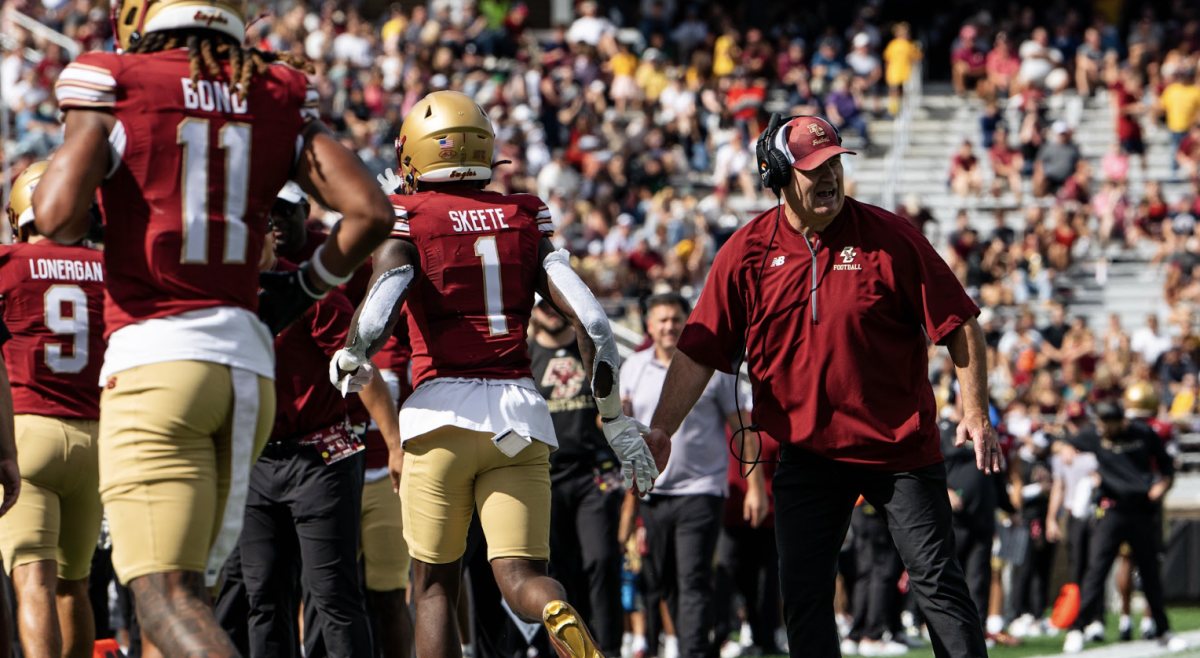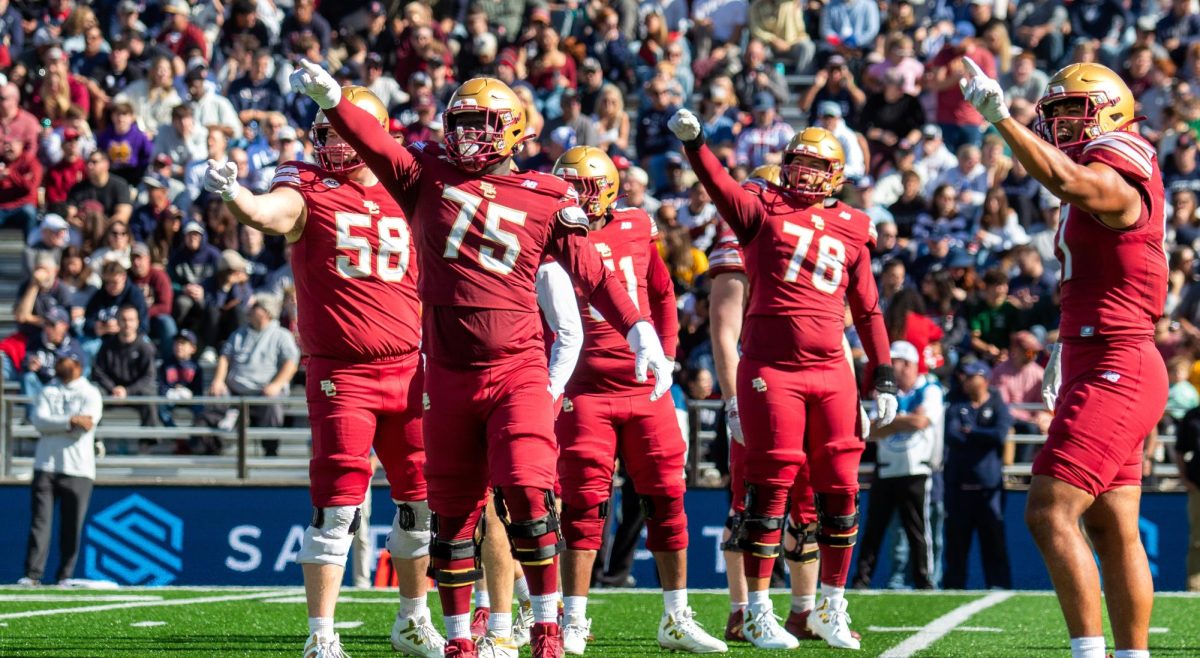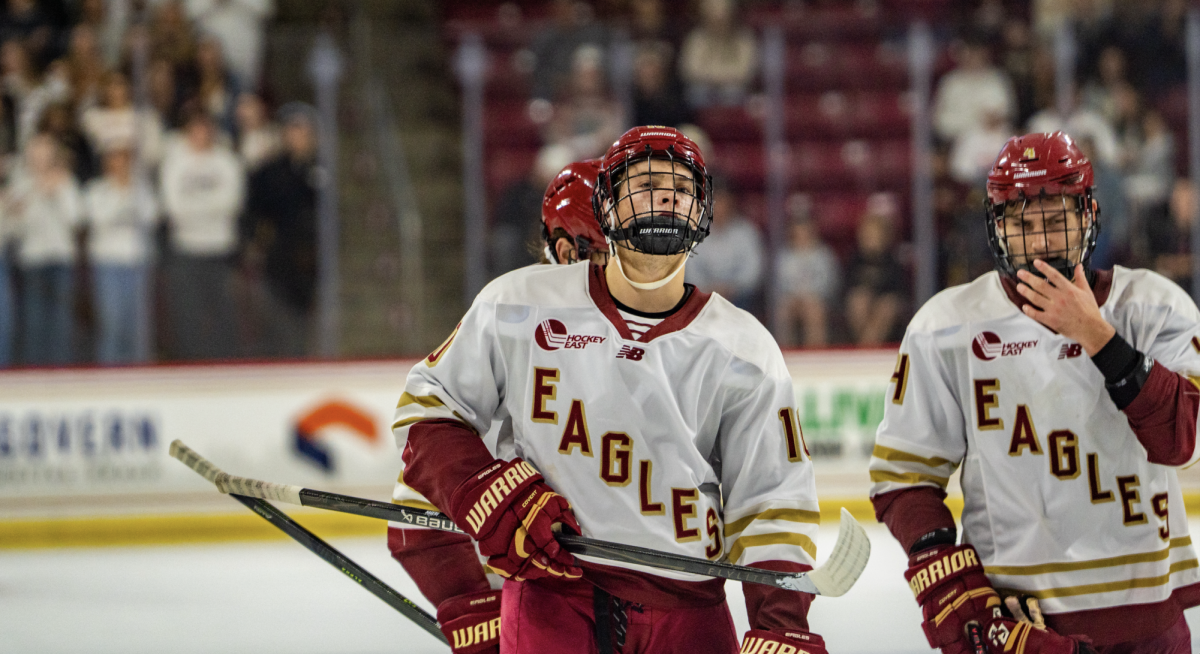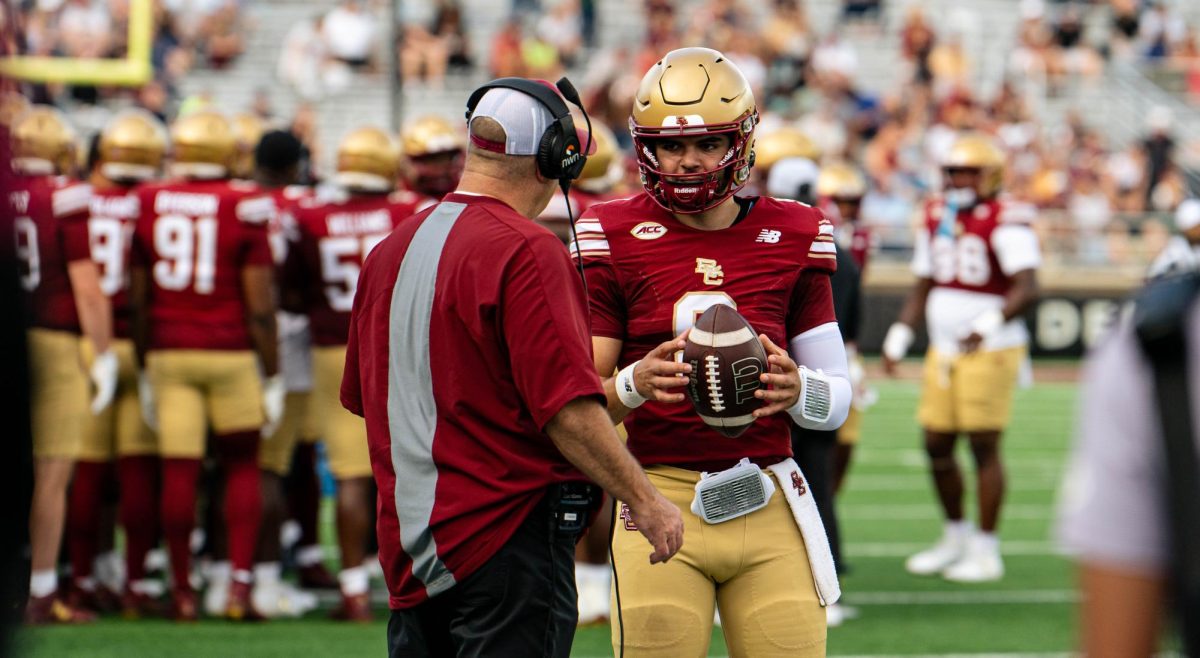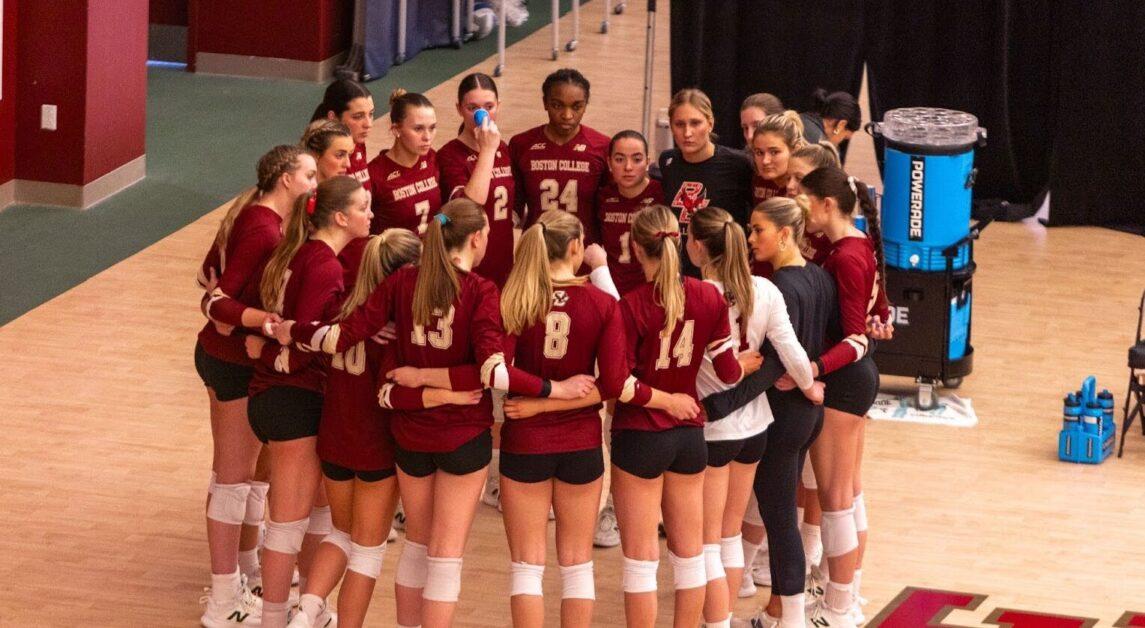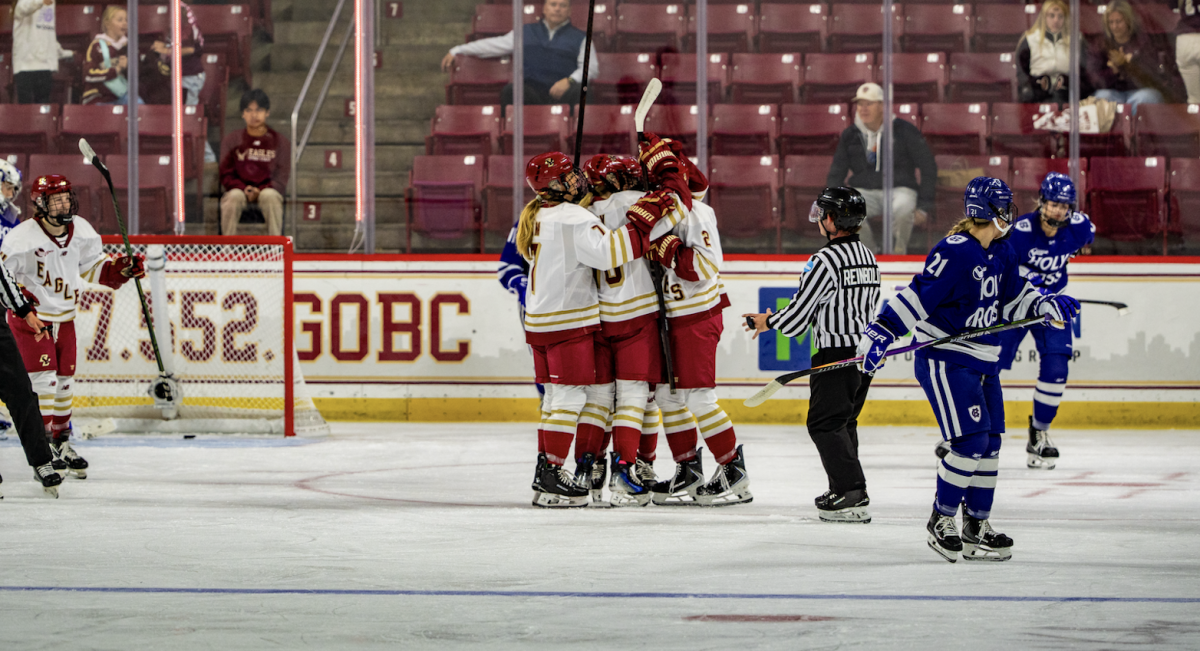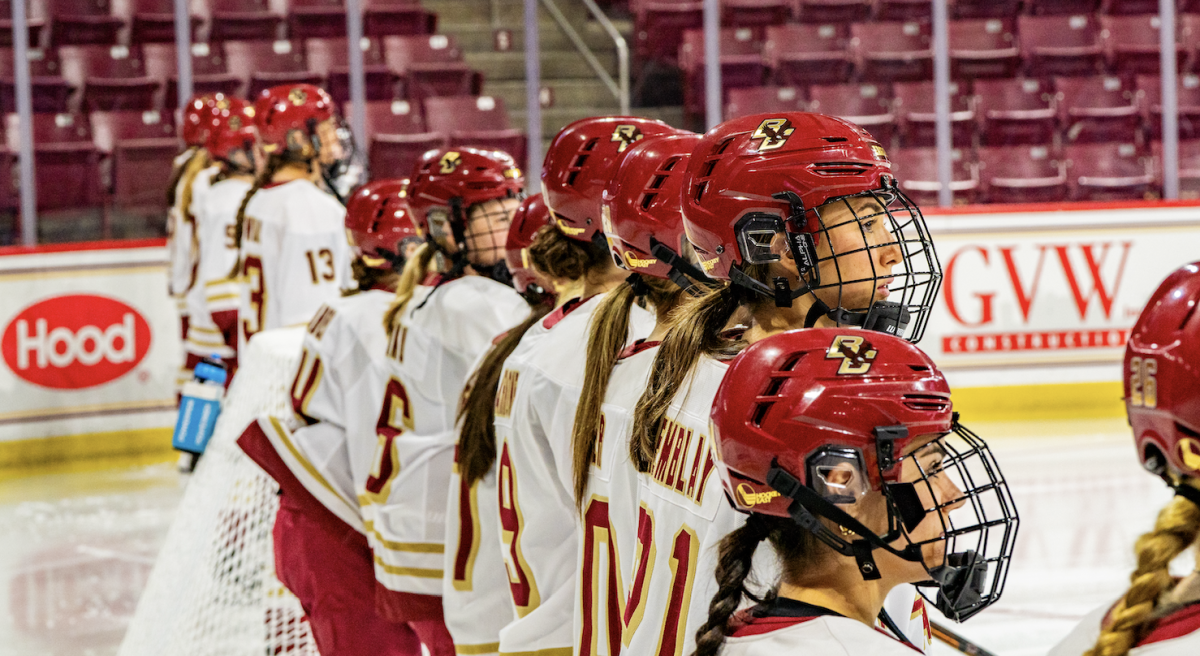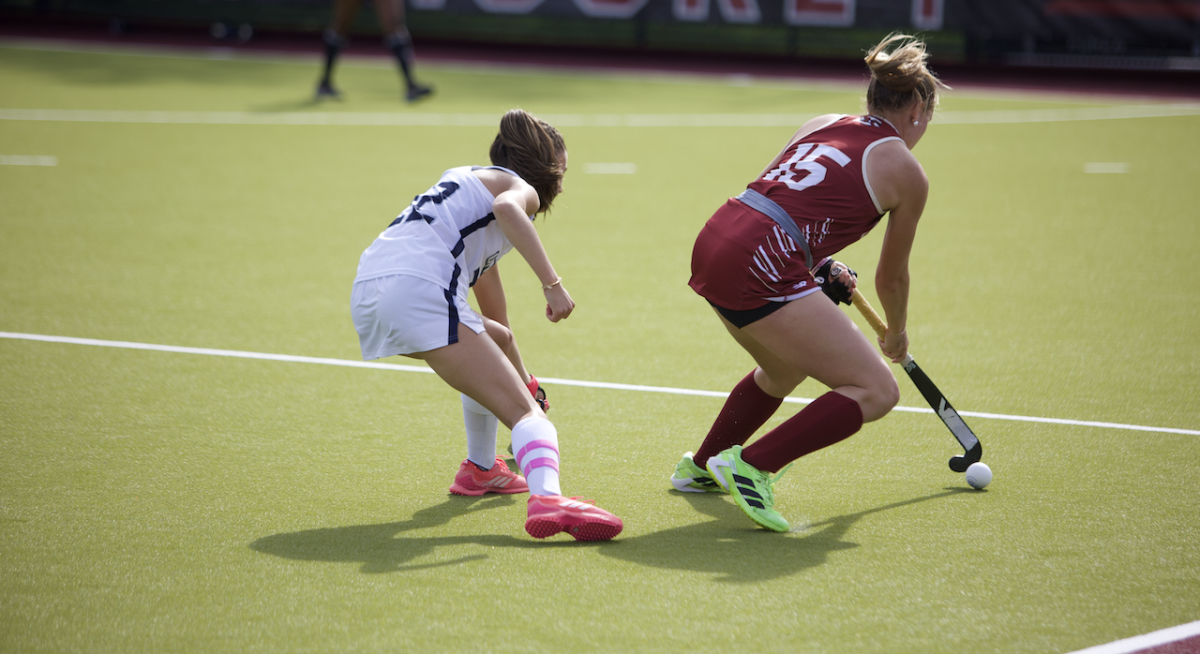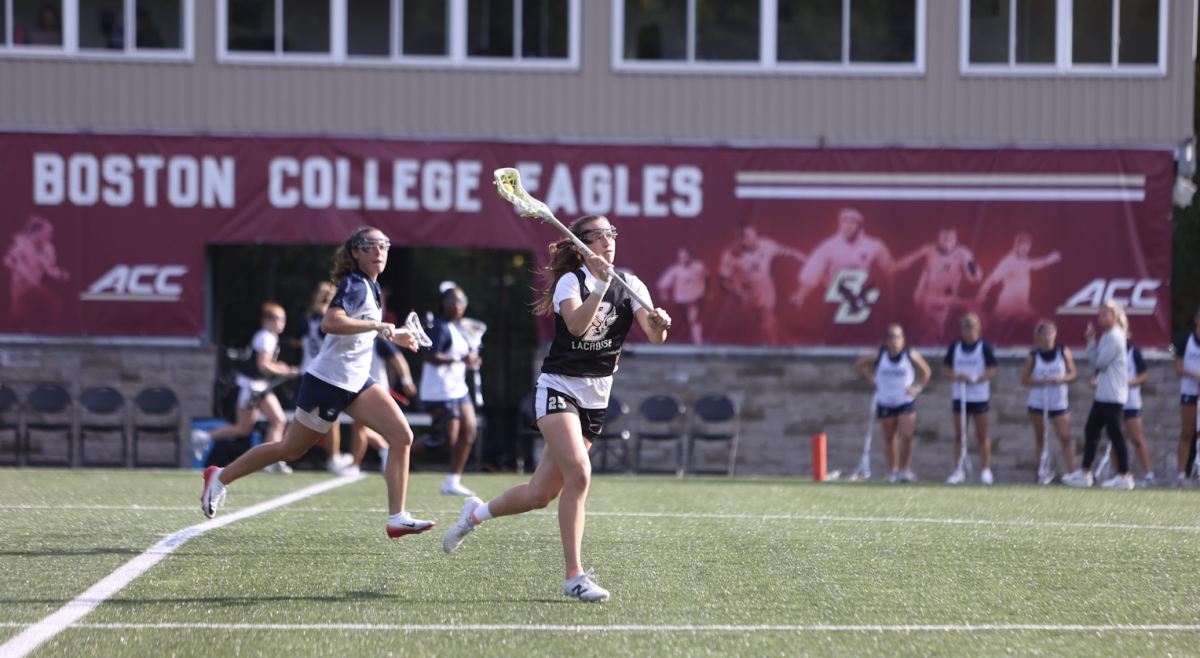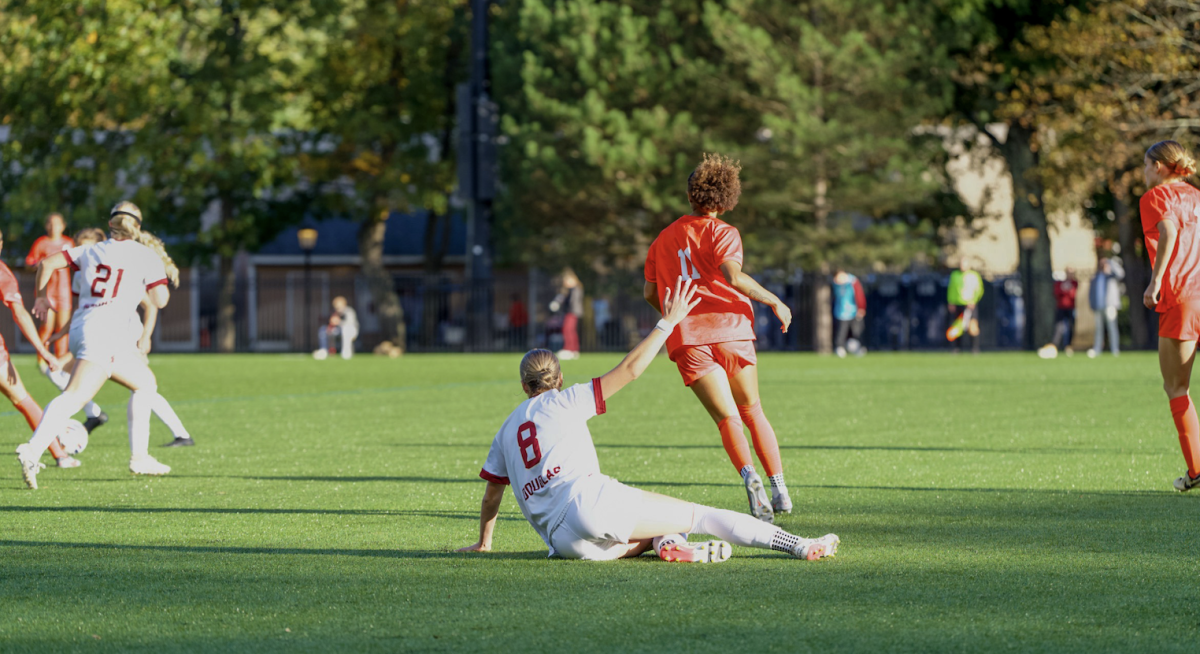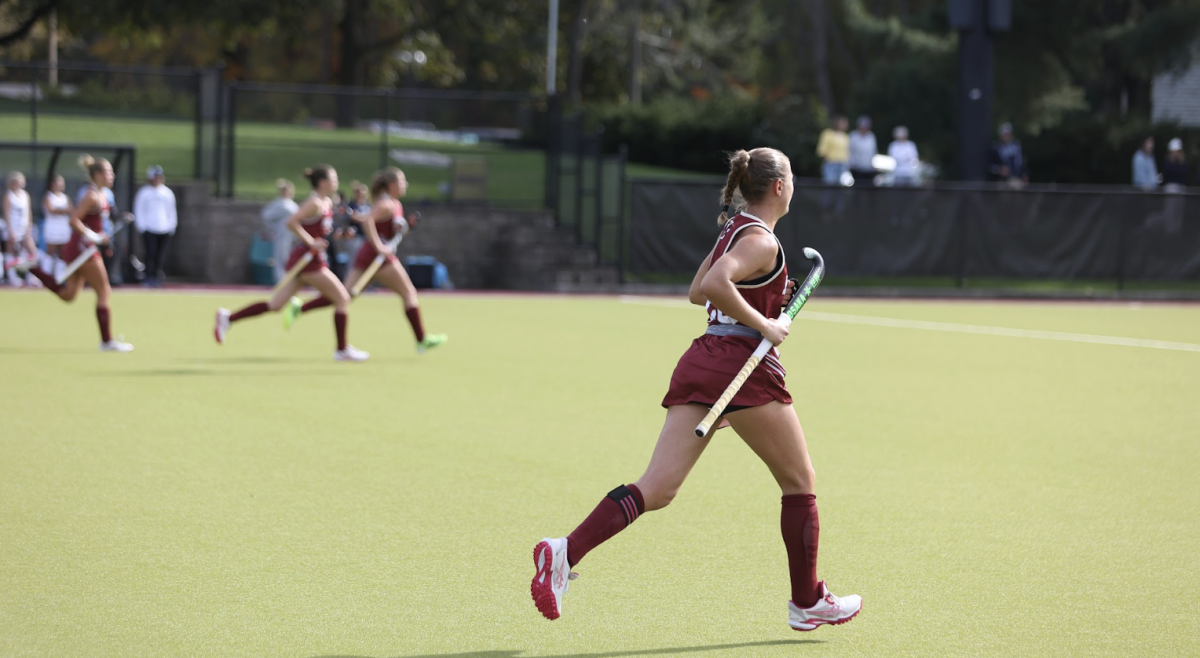Clearly nobody told Boston College women’s hockey that when you’re coming off your first season with double-digit losses since 2011-12 and facing an exodus of talent—which includes your top-four point producers—you’re supposed to take a step back.
Instead, the Eagles have secured points in 10 of their first 11 games, going 9-1-1 and building a six-point cushion in the Hockey East table. Save for a 5-2 setback on Sunday afternoon against Connecticut and a 3-3 draw with Maine near the end of October, BC has stormed through its early schedule behind the conference’s highest-scoring offense.
It’s been an impressive coaching job from head coach Katie Crowley and her staff, as the Eagles have withstood the loss of 2017-18 Patty Kazmaier Award winner Daryl Watts, 2018-19 finalist Megan Keller, and talented forwards Caitrin Lonergan and Makenna Newkirk. Crowley stressed before the season that she was eagerly anticipating a more balanced offense, and while that may of seemed like typical coachspeak at the time, it has absolutely been true.
“I think we’ll have more of a team production atmosphere as opposed to just a couple of players,” Crowley said before the season. “I think these players that are here have really bonded and I think they feel like they have a little something to prove.”
The keys behind BC’s offensive consistency do not involve one player or a single standout line, just steady play spearheaded by a balanced defensive corps and a plethora of scoring options up top. It’s no secret that the best teams in college hockey get scoring throughout their lines—Wisconsin won a national championship last year with 16 players recording double-digit points on the year—and the Eagles have been no different thus far. Crowley has established a set of lines that have largely remained unchanged throughout the year, and the results have poured in.
During BC’s 10-game unbeaten run, 12 different players scored a goal and 16 logged points. It’s a lot for opposing teams to grapple with when there’s not one or two players to try and lock down. In the loss to UConn, the only line that produced any points was the third line, and the outcome was a three-goal defeat. Other than that setback, though, Crowley has gotten production from up and down her roster.
As it stands, the Eagles have a trio of lines that are finding plenty of success. The top line features wings Olivia Finocchiaro and Hannah Bilka with Kelly Browne in the middle, and those three have been as formidable as they come, totaling 46 points in 11 games. Finocchiaro has thrived in a more significant role from last year, Browne has taken the next step forward after closing 2018-19 strong—as Crowley expected—and Bilka has been one of the nation’s top freshman.
In sum, Bilka and Browne are second and third in Hockey East in points, the byproduct of consistent scoring and a few dynamic individual games. Bilka, the Hockey East Rookie of the Month, scored four goals on four shots against Holy Cross, while Browne matched that with a four-goal showing against New Hampshire.
That’s not to say that the Finocchiaro-Browne-Bilka line is the only one producing. Crowley’s “veteran” line, made up of longtime Eagles in Maegan Beres, Erin Connolly, and Delaney Belinskas, has 15 points. Nine of those have come off the stick of Belinskas, who is tied for third in the conference with seven goals. Then there’s the duo of underclassmen Savannah Norcross and Caroline DiFiore, paired with a player who’s been around college hockey for a while: Lindsay Agnew. Norcross, much like Finocchiaro, has thrived in a larger role, totaling six goals.
These forward lines wouldn’t have as much success without the best possible pairings on defense, though, and that’s where Crowley has been able to engineer plenty of magic. Defense was even more of a question mark than the forward lines coming in, with the 13th-year head coach returning just two players from last year’s unit that ranked fourth in the conference in scoring defense.
Crowley paired both returners—Cayla Barnes and Jillian Fey—with freshmen Alexie Guay and Hadley Hartmetz, respectively. The third line of defense is a pair of first-year players as well, with Deidre Mullowney and Abby Volo suiting up. The results have been terrific, as the Eagles have been able to build play up from the back and create opportunities in transition.
Barnes and Guay have been nothing short of formidable, ranking first and fourth in the conference in defenseman scoring, respectively. The tandem has combined for 19 assists in just 11 games, a prolific rate that speaks to how much more cohesive BC has been able to play this season. Hartmetz and Fey have combined for nine assists as well, so the unit is averaging almost 2.7 per game, a marked improvement from last season—when BC had more prolific targets up top and a Patty Kazmaier Award finalist on the blue line.
Overall, albeit in a smaller sample size, the Eagles are scoring almost a goal more per game (4.18, tops in Hockey East) this year and have additionally climbed a spot in the scoring defense ranks. A more united team approach has benefited BC, as it is no longer relying on one or two individuals to bail the team out. The Eagles have three of the top-five scorers in the conference and five players find themselves in the top seven in assists.
Now, this should all be taken with a grain of salt. BC has faced just one top-20 scoring defense (Vermont) and has five wins over the likes of Merrimack and Holy Cross—the conference’s bottom-feeders. With the exception of the surprising loss to UConn, the Eagles have made quick work of a schedule that ranks 25th in the country. The path quickly gets difficult, though, as the run of games up to the team’s winter break will reveal a lot about whether this well-distributed offense can sustain its torrid play.
BC’s next eight games—before taking almost a month off—feature a plethora of ranked opponents. The Eagles play rival Boston University—currently 10th in the USCHO.com poll—three times, and also face off against No. 4 Northeastern, No. 1 Minnesota, and No. 2 Wisconsin. Plus, the two games against unranked opponents? A home-and-home series with the UConn, which will be eager to replicate its Sunday afternoon success.
BC has impressed thus far, but this stretch of games will help answer the question of if the newfound scoring balance was simply a product of an easier schedule, or the result of an efficient offensive system that could have the team poised for a deeper run than last year’s up-and-down campaign.
Featured Image by Jess Rivilis / Heights Staff


